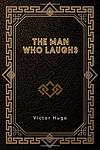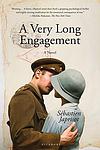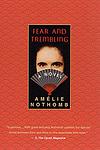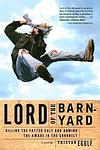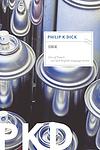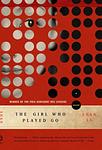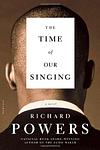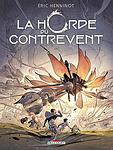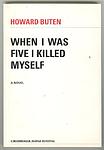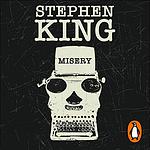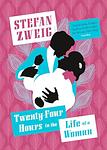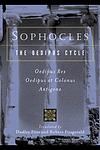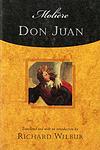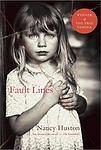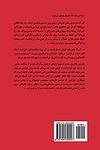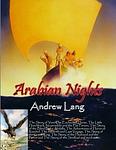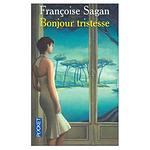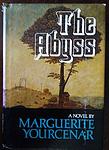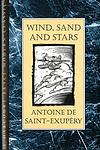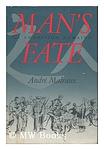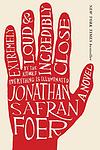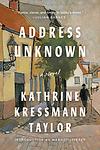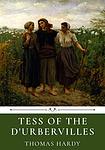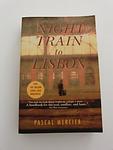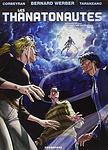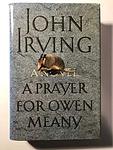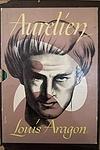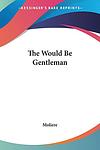The 500 best books of all time from Culture Café users
This is one of the 300 lists we use to generate our main The Greatest Books list.
-
The Man Who Laughs by Victor Hugo
Set in 17th-century England, the novel follows the life of a disfigured boy, abandoned as a child on a winter's night, who is taken in and raised by a kind-hearted showman. The boy grows up to become a popular performer due to his permanent grin, a result of a cruel mutilation inflicted by a group of comprachicos. His life is marked by a series of dramatic turns, including love, nobility, and political intrigue. As he navigates a society that is both repulsed by his appearance and captivated by his entertainment, the narrative delves into themes of inner beauty, the nature of humanity, and the corrupting influence of wealth and power.
The 5201st Greatest Book of All Time -
A Very Long Engagement by Sebastien Japrisot
The novel is a poignant exploration of love and perseverance set against the backdrop of World War I. It follows a young Frenchwoman who refuses to accept the official story that her fiancé has died on the battlefield. Despite being told he was executed for self-mutilation to escape military service, along with four other condemned soldiers, she embarks on a relentless quest to discover the truth. Her journey reveals a tangled web of deceit, cover-ups, and unexpected alliances, as she holds onto hope that her beloved is still alive. Through her unwavering determination, the narrative delves into the horrors of war and the enduring power of love.
The 6490th Greatest Book of All Time -
The Cider House Rules by John Irving
This novel tells the story of Dr. Wilbur Larch—saint and obstetrician, founder and director of the orphanage in the town of St. Cloud's, Maine, and a man of rare compassion and an addiction to ether. Dr. Larch loves all his orphans, especially Homer Wells, who is never adopted and becomes his invaluable apprentice. As Homer comes of age, he must leave the only home he's ever known to explore the world outside, a world filled with temptations and moral dilemmas, from the struggle over abortion to the question of what constitutes a family.
The 981st Greatest Book of All Time -
Lost Illusions by Honoré de Balzac
"Lost Illusions" is a sweeping narrative that focuses on the life of a young, ambitious poet from the provinces who moves to Paris in hopes of making a name for himself. Over time, he becomes disillusioned with the corruption and moral decay of the city's literary and high society circles. The protagonist's journey is marked by his struggle to maintain his integrity and idealism in a world dominated by materialism and selfish interests. The novel is a critical commentary on the destructive power of unchecked ambition and the pitfalls of vanity.
The 615th Greatest Book of All Time -
Steppenwolf by Hermann Hesse
The novel presents a poignant exploration of a man's struggle with his dual nature. The protagonist, a middle-aged man, finds himself torn between his humanistic, intellectual tendencies and his more primitive, wolf-like instincts. As he navigates his way through the surreal and sometimes hallucinatory world, he encounters various characters who challenge his views and push him towards self-discovery and transformation. The narrative delves into themes of alienation, the subconscious mind, and the search for meaning in life.
The 147th Greatest Book of All Time -
Macbeth by William Shakespeare
This classic play follows the tragic tale of Macbeth, a Scottish general whose ambition is sparked by a prophecy from three witches that he will one day become King of Scotland. Consumed by ambition and spurred on by his wife, Macbeth murders King Duncan and takes the throne. However, guilt and paranoia plague him, leading to a reign of terror and further bloodshed. His desperate attempts to cling onto power lead to his downfall, illustrating the destructive power of unchecked ambition.
The 222nd Greatest Book of All Time -
The Magic Mountain by Thomas Mann
In this novel, the protagonist, a young, ordinary man, visits his cousin at a tuberculosis sanatorium in the Swiss Alps. Intending to stay for only a few weeks, he ends up remaining there for seven years, becoming a patient himself. The book explores his experiences and relationships with other patients and staff, delving into philosophical discussions on life, time, and the nature of disease. It also provides a vivid portrayal of the European society and intellectual life on the eve of World War I.
The 43rd Greatest Book of All Time -
Fear And Trembling by Amélie Nothomb
The book is a psychological exploration of the clash between Western and Eastern business cultures, as seen through the eyes of a young Belgian woman working for a major Japanese corporation in Tokyo. The protagonist's initial fascination with the company's traditional Japanese corporate culture turns into a harrowing psychological ordeal as she confronts extreme work ethic, rigid hierarchies, and the challenge of maintaining her identity in the face of overwhelming conformity. Through her experiences, the novel delves into themes of alienation, the search for self, and the often surreal nature of cross-cultural encounters.
The 7001st Greatest Book of All Time -
Anna Karenina by Leo Tolstoy
Set in 19th-century Russia, this novel revolves around the life of Anna Karenina, a high-society woman who, dissatisfied with her loveless marriage, embarks on a passionate affair with a charming officer named Count Vronsky. This scandalous affair leads to her social downfall, while parallel to this, the novel also explores the rural life and struggles of Levin, a landowner who seeks the meaning of life and true happiness. The book explores themes such as love, marriage, fidelity, societal norms, and the human quest for happiness.
The 14th Greatest Book of All Time -
Moby Dick by Herman Melville
The novel is a detailed narrative of a vengeful sea captain's obsessive quest to hunt down a giant white sperm whale that bit off his leg. The captain's relentless pursuit, despite the warnings and concerns of his crew, leads them on a dangerous journey across the seas. The story is a complex exploration of good and evil, obsession, and the nature of reality, filled with rich descriptions of whaling and the sea.
The 9th Greatest Book of All Time -
Bel Ami by Guy de Maupassant
"Bel Ami" is a novel set in 19th-century Paris, focusing on the life of an ambitious young man who rises from poverty to wealth and power. It explores themes of corruption, manipulation, and the societal power dynamics of the time. The protagonist utilizes his charm and wit to climb the social ladder, seducing and manipulating several influential women along the way. The story provides a critical look at the French bourgeoisie and the moral decay within this social class.
The 1200th Greatest Book of All Time -
The Sound and the Fury by William Faulkner
The novel is a complex exploration of the tragic Compson family from the American South. Told from four distinct perspectives, the story unfolds through stream of consciousness narratives, each revealing their own understanding of the family's decline. The characters grapple with post-Civil War societal changes, personal loss, and their own mental instability. The narrative is marked by themes of time, innocence, and the burdens of the past.
The 21st Greatest Book of All Time -
Lord Of The Barnyard by Tristan Egolf
The book is a darkly comedic and sprawling tale of a rural American outcast, whose life is marked by relentless misfortune and societal marginalization. The protagonist, with an extraordinary talent for animal husbandry, finds himself in constant conflict with the small-minded townsfolk and corrupt officials of his Midwestern community. His journey is one of epic struggle against adversity and the pettiness of small-town politics, culminating in a dramatic and chaotic rebellion that upends the social order of his world. The narrative weaves a rich tapestry of rural life, exploring themes of revenge, social injustice, and the quest for personal redemption.
The 3612th Greatest Book of All Time -
Ubik by Philip K. Dick
Set in a futuristic world, the novel follows Joe Chip, a technician at a psychic agency, who becomes trapped in a reality-altering phenomenon after a mission on the Moon goes wrong. As his reality begins to unravel, Chip and his colleagues find themselves in a bizarre world where time seems to be moving backward and a mysterious product called "Ubik" appears to be the only thing that can save them. The book explores themes of reality, entropy, and human perception in a surreal and often humorous manner.
The 737th Greatest Book of All Time -
The Girl Who Played Go by Shan Sa
Set in the 1930s during the Japanese occupation of Manchuria, the novel intertwines the lives of a young Chinese girl, a master of the ancient board game Go, and a Japanese soldier. As the girl seeks refuge from the turmoil of war in the strategy and beauty of Go, she encounters the soldier in the public square where they silently engage in a series of games. The board becomes a silent battleground reflecting their personal and political struggles. Their growing connection and the insights they gain into each other's cultures and vulnerabilities lead to a poignant and tragic conclusion, underscoring the senselessness of war and the transcendent power of human connection and empathy.
The 7764th Greatest Book of All Time -
The Kindly Ones by Jonathan Littell
The book in question is a fictional memoir of a former SS intelligence officer who recounts his experiences during World War II, offering a detailed and disturbing insight into the machinery of the Nazi genocide from the perspective of a perpetrator. The narrative delves into the protagonist's complex psychology and his role in the atrocities committed during the Holocaust, as well as his post-war life. The novel is notable for its extensive historical research, moral ambiguity, and the controversial and unflinching portrayal of the horrors of the time.
The 8298th Greatest Book of All Time -
Le Grand Meaulnes by Henri Alain-Fournier
The novel centers around a mysterious and charismatic adolescent, Augustin Meaulnes, who arrives at a rural school in Sologne, France, and quickly becomes the focus of intrigue among his peers. The story is narrated by his friend, François Seurel, who recounts the adventures that ensue when Meaulnes stumbles upon a surreal estate where a lavish party is taking place, leading him to meet and fall for the enchanting Yvonne de Galais. The tale weaves themes of lost love, yearning, and the painful transition from the innocence of childhood to the complexities of adulthood, as Meaulnes becomes obsessed with finding the estate and Yvonne again, embarking on a quest that will profoundly affect all involved.
The 547th Greatest Book of All Time -
The Time of Our Singing by Richard Powers
"The Time of Our Singing" is a complex narrative that follows the lives of a mixed-race family in America from the 1930s to the 1990s. The family, born from the union of a black woman and a Jewish man, grapples with racial identity, familial bonds, and the power of music. The story is told through the perspective of one of the sons, a talented singer, and delves into themes of race, identity, and the struggle for civil rights in America.
The 4729th Greatest Book of All Time -
Phèdre by Jean Racine
"Phèdre" is a classic French play that explores themes of love, guilt, and retribution. The story revolves around the tragic heroine, Phèdre, who falls passionately in love with her stepson, Hippolytus. Battling with her forbidden desires, she eventually confesses her feelings to Hippolytus, leading to a series of devastating events. The play is renowned for its exploration of human emotions, moral dilemmas, and the destructive power of uncontrolled passion.
The 659th Greatest Book of All Time -
Fear and Loathing in Las Vegas: A Savage Journey to the Heart of the American Dream by Hunter S. Thompson
This book is a semi-autobiographical novel that chronicles the adventures of a journalist and his attorney as they embark on a drug-fueled trip to Las Vegas. The narrative is a wild and hallucinatory exploration of the American Dream, filled with biting social commentary and outrageous antics. The protagonist's quest for the American Dream quickly devolves into an exploration of the darker side of human nature, highlighting the excesses and depravities of 1960s American society.
The 171st Greatest Book of All Time -
Foundation by Isaac Asimov
This science fiction novel centers around Hari Seldon, a mathematician who has developed a branch of mathematics known as psychohistory. With it, he can predict the future on a large scale. Seldon foresees the imminent fall of the Galactic Empire, which encompasses the entire Milky Way, and a dark age lasting 30,000 years before a second great empire arises. To shorten this period of barbarism, he creates two Foundations at opposite ends of the galaxy. The book follows the first few centuries of the Foundation's existence, focusing on the scientists as they develop new technologies and negotiate with neighboring planets.
The 247th Greatest Book of All Time -
The Secret History by Donna Tartt
A group of six classics students at a small, elite Vermont college, led by a charismatic professor, become entranced by the study of Greek culture and decide to recreate a Dionysian ritual, which ends in a tragic accident. The group, bound by their shared secret, begins to unravel as paranoia and guilt take hold. The novel explores themes of beauty and terror, the allure of the esoteric, and the destructive consequences of obsession.
The 188th Greatest Book of All Time -
The Unnamable by Samuel Beckett
"The Unnamable" is a complex, stream-of-consciousness narrative that explores themes of existence, identity, and the nature of reality. The protagonist, who lacks a clear identity, is trapped in a void and continually questions his existence and reality. As he grapples with his own consciousness, he attempts to tell his story, but constantly doubts and revises it, creating a cyclical, fragmented narrative. The novel is known for its challenging, abstract prose and its exploration of existentialist themes.
The 469th Greatest Book of All Time -
Fictions by Jorge Luis Borges
"Collected Fiction" is a compilation of stories by a renowned author that takes readers on a journey through a world of philosophical paradoxes, intellectual humor, and fantastical realities. The book features a range of narratives, from complex, multi-layered tales of labyrinths and detective investigations, to metaphysical explorations of infinity and the nature of identity. It offers an immersive and thought-provoking reading experience, blurring the boundaries between reality and fiction, past and present, and the self and the universe.
The 99th Greatest Book of All Time -
The Call of the Wild by Jack London
This book tells the story of a domesticated dog named Buck who is stolen from his home in California and sold into service as a sled dog in Alaska. As he faces harsh conditions and brutal treatment, Buck must learn to adapt to the wild and harsh environment, ultimately reverting to his ancestral instincts in order to survive. The book explores themes of nature versus nurture, civilization versus wilderness, and the struggle for dominance.
The 159th Greatest Book of All Time -
The Scarlet Letter by Nathaniel Hawthorne
Set in 17th-century Puritan Boston, this novel tells the story of a woman who conceives a daughter through an affair and struggles to create a new life of repentance and dignity. She is forced to wear a scarlet "A" on her dress as a sign of her adultery while her lover, a revered local minister, remains unnamed and unpunished. Throughout the book, themes of sin, legalism, and guilt are explored.
The 58th Greatest Book of All Time -
Ivanhoe by Sir Walter Scott
Set in 12th-century England, the novel follows the story of Wilfred of Ivanhoe, a young Saxon knight, returning from the Crusades. He is disowned by his father for his allegiance to the Norman king Richard the Lionheart. The narrative encompasses themes of chivalry, rivalry, and the struggle between Saxons and Normans, while also highlighting the tension between Jews and Christians. The tale is known for its action-filled tournaments, sieges, and the character of Rebecca, a virtuous and strong Jewish woman.
The 264th Greatest Book of All Time -
Animal Farm by George Orwell
"Animal Farm" is a satirical fable set on a farm where the animals revolt, overthrow their human farmer, and take over the running of the farm for themselves. The story is an allegory of the Russian Revolution and the rise of Stalin, and the tale is told by the animals that inhabit the farm, primarily pigs who become the ruling class. Despite their initial attempts at creating an equal society, corruption and power ultimately lead to a regime as oppressive as the one they overthrew.
The 74th Greatest Book of All Time -
La Horde Du Contrevent by Alain Damasio
The book is a French science fiction novel that follows a group of intrepid explorers, known as the Horde, as they embark on an epic quest against a relentless, omnipresent wind to reach the mysterious source of the wind at the far end of their world. The narrative is uniquely structured, with each member of the Horde providing their own perspective, and the story delves into themes of camaraderie, human resilience, and the struggle against nature. As the characters face physical and existential challenges, the novel explores the depths of human experience and the bonds that form in the face of adversity.
The 8096th Greatest Book of All Time -
The Gambler by Fyodor Dostoevsky
"The Gambler" is a novel that explores the psychological implications of addiction, specifically gambling. The story is narrated by a young tutor working in the household of a wealthy Russian general. He becomes obsessed with roulette and falls in love with a beautiful but cruel woman in the general's employ. The narrative delves into his descent into addiction, his tumultuous relationship with the woman he loves, and the impact of his destructive habits on his life and those around him.
The 2874th Greatest Book of All Time -
When I Was Five I Killed Myself by Howard Buten
The book is a compelling narrative told from the perspective of an eight-year-old boy named Burt, who is misunderstood by the adults around him. After a troubling incident involving a young girl, Burt is sent to a children's institution where he struggles to convey his emotions and experiences in a world that seems determined to analyze and reform him. Through his interactions with the institution's staff and his own introspective process, the story delves into themes of childhood innocence, communication barriers, and the profound impact of adult interpretations on a child's psyche. The novel is a poignant exploration of the complexities of growing up and the consequences of misinterpreting a child's actions and words.
The 5700th Greatest Book of All Time -
Misery by Stephen King
A successful novelist is rescued from a car crash by a deranged fan who is upset with the death of her favorite character from his books. Trapped in her remote home, the writer is subjected to physical and psychological torture as the fan forces him to write a new novel bringing the character back to life. As he writes for his life, he must also plan his escape before his captor's rage becomes deadly.
The 614th Greatest Book of All Time -
Fahrenheit 451 by Ray Bradbury
In a dystopian future where books are banned and burned by the government to prevent dissenting ideas, a fireman named Guy Montag, whose job is to burn books, begins to question the society he serves. After a series of events, including meeting a free-thinking teenager and witnessing a woman choosing to die with her books, Montag begins to secretly collect and read books, leading to his eventual rebellion against the oppressive regime. The narrative serves as a critique of censorship, conformity, and the dangers of an illiterate society.
The 112th Greatest Book of All Time -
The Hunchback of Notre-Dame by Victor Hugo
Set in 15th-century Paris, this novel follows the story of Quasimodo, a deformed and hunchbacked bell-ringer of Notre-Dame Cathedral, who is shunned due to his appearance. Despite his physical deformities, Quasimodo falls in love with the beautiful gypsy girl, Esmeralda. However, his love is unrequited as she is in love with a handsome soldier. The novel explores themes of love, rejection, and the human struggle against fate and societal norms.
The 383rd Greatest Book of All Time -
Franny and Zooey by J. D. Salinger
The book is a two-part narrative focusing on the siblings Franny and Zooey Glass. Franny, a college student, is experiencing a spiritual and existential breakdown, questioning the value of her education and the authenticity of the world around her. Zooey, her older brother and a former child prodigy, attempts to guide her through her crisis, using their shared experiences and the teachings of their older brothers. The book explores themes of spirituality, family dynamics, and the struggle for authenticity in a superficial world.
The 644th Greatest Book of All Time -
Twenty Four Hours In The Life Of A Woman by Stefan Zweig
The novella delves into the intense emotional landscape of a middle-aged English widow who, while staying at a Riviera resort, becomes deeply fascinated by the plight of a young man consumed by a gambling addiction. Over the course of a day, their lives intertwine, leading her to reflect on the nature of obsession and the fleeting moments of passion that can irrevocably alter one's life. As she recounts her own story of moral and emotional upheaval, the narrative explores themes of societal expectations, personal liberation, and the profound impact of ephemeral encounters.
The 1818th Greatest Book of All Time -
Antigone by Jean Anouilh
The play is a modern adaptation of the classic Greek tragedy, which follows the story of Antigone, the daughter of Oedipus, as she defies the laws of the state to bury her brother Polynices, who has been declared a traitor and whose body has been condemned to remain unburied. Antigone's actions set her at odds with Creon, the ruler of Thebes, leading to a profound exploration of the conflict between individual conscience and state law, the role of fate, and the nature of morality. As Antigone's resolve leads her to tragic consequences, the play delves into themes of loyalty, honor, and the human cost of absolute power.
The 3017th Greatest Book of All Time -
If This Is a Man by Primo Levi
This book is a deeply moving and insightful memoir of a survivor of Auschwitz, a Nazi concentration camp during World War II. The author, an Italian Jew, provides a detailed account of his life in the camp, the brutal conditions, the dehumanization, and the struggle for survival. The narrative is a profound exploration of the human spirit, resilience, and the will to live, despite unimaginable horror and suffering. It also raises profound questions about humanity, morality, and the capacity for evil.
The 251st Greatest Book of All Time -
Love in the Time of Cholera by Gabriel García Márquez
This novel follows the story of Florentino Ariza and Fermina Daza, who fall passionately in love in their youth. However, Fermina eventually marries a wealthy doctor, leaving Florentino heartbroken. Despite this, Florentino remains devoted to Fermina for over fifty years, patiently waiting for her husband's death to have another chance at her love. The story is set against the backdrop of a cholera epidemic, serving as a metaphor for the transformative power of love and the destructive power of obsession.
The 111th Greatest Book of All Time -
For Whom the Bell Tolls by Ernest Hemingway
Set in the backdrop of the Spanish Civil War, the novel follows the story of an American dynamiter, who is assigned the task of blowing up a bridge during a crucial attack on the city of Segovia. Alongside the war narrative, the story also explores his relationships with various characters, including his love affair with a young Spanish woman. The narrative beautifully encapsulates themes of love, war, death, and the transient nature of life.
The 80th Greatest Book of All Time -
Under the Volcano by Malcolm Lowry
Set in Mexico on the Day of the Dead in 1938, the novel follows the last day in the life of Geoffrey Firmin, a British consul with a severe alcohol addiction. Through his interactions with his estranged wife and half-brother, the book explores themes of despair, betrayal, and the destructive power of addiction, against the backdrop of political and social unrest. The impending eruption of the nearby volcano serves as a metaphor for Firmin's deteriorating mental state and the looming world war.
The 118th Greatest Book of All Time -
The Lover by Marguerite Duras
"The Lover" is a poignant exploration of forbidden love, power dynamics, and colonialism. Set in 1930s French Indochina, it tells the story of a tumultuous and passionate affair between a 15-year-old French girl and her wealthy, older Chinese lover. The narrative delves into the complexities of their relationship, the societal norms they defy, and the inevitable heartbreak that follows. The protagonist's struggle with her family's poverty and her mother's mental instability further complicates the story, making it a compelling exploration of love, desire, and societal constraints.
The 297th Greatest Book of All Time -
The Divine Comedy by Dante Alighieri
In this epic poem, the protagonist embarks on an extraordinary journey through Hell (Inferno), Purgatory (Purgatorio), and Paradise (Paradiso). Guided by the ancient Roman poet Virgil and his beloved Beatrice, he encounters various historical and mythological figures in each realm, witnessing the eternal consequences of earthly sins and virtues. The journey serves as an allegory for the soul's progression towards God, offering profound insights into the nature of good and evil, free will, and divine justice.
The 27th Greatest Book of All Time -
Hyperion by Dan Simmons
The book is a science fiction narrative that weaves together the tales of seven pilgrims as they journey to the distant world of Hyperion on the eve of interstellar war. Each pilgrim has their own reason for undertaking this pilgrimage to the Shrike, a mysterious and feared creature that resides in the Time Tombs, which are moving backwards through time. As they travel, they share their stories, revealing personal quests, humanity's complex relationship with technology, and the overarching mystery of the Shrike and Hyperion itself. The novel combines elements of space opera with a frame story structure reminiscent of "The Canterbury Tales," exploring themes of love, religion, politics, and art, all set against the backdrop of an impending catastrophe.
The 1014th Greatest Book of All Time -
Don Juan by Molière
This comedic play explores the life of a libertine nobleman who is infamous for his seduction of women. The protagonist is a man who lives by his own rules, unburdened by morality or religion, and who takes pleasure in manipulating others for his own gain. His actions eventually lead to his downfall when he refuses to repent for his sins, resulting in a dramatic, supernatural punishment.
The 2198th Greatest Book of All Time -
Au Bonheur Des Dames by Émile Zola
The novel centers on the transformation of the Parisian retail world in the late 19th century, following the story of a young woman from the provinces who comes to Paris and finds work at a grand department store. The store, with its innovative marketing and sales tactics, represents the rise of capitalism and the modern consumer culture, dramatically altering the fabric of society. As the protagonist navigates the challenges of her new life, she witnesses the impact of the retail revolution on small businesses and the lives of the store's employees, all while exploring themes of ambition, love, and the relentless pursuit of progress.
The 5206th Greatest Book of All Time -
Fault Lines by Nancy Huston
"Fault Lines" is a novel that delves into the complex layers of family history and the impact of past traumas on the present. The narrative unfolds through the eyes of four different children from successive generations of the same family, each chapter moving back in time to reveal the secrets and challenges faced by their ancestors. The story explores themes of identity, memory, and the inherited nature of suffering, as the protagonists grapple with the legacies of war, displacement, and personal tragedy that ripple through their lineage. The novel's unique structure and poignant storytelling invite readers to reflect on how the fault lines of history can shape individual lives and relationships across generations.
The 8300th Greatest Book of All Time -
The Elementary Particles by Michel Houellebecq
"The Elementary Particles" is a provocative novel that explores the lives of two half-brothers, one a molecular biologist and the other a disenchanted teacher, against the backdrop of late 20th-century France. The narrative delves into their personal struggles and emotional turmoil, resulting from their dysfunctional upbringing by a self-absorbed, hedonistic mother. Throughout the novel, the author uses their stories to critique contemporary society, touching on themes such as sexual liberation, consumerism, and the decline of traditional values. The book also delves into the implications of scientific advancements, particularly in the field of molecular biology.
The 905th Greatest Book of All Time -
City of Glass by Paul Auster
A struggling author becomes entangled in a complex mystery when he receives a wrong-number call asking for a private detective. After impulsively deciding to take on the role, he is hired to protect a man from his mentally unstable father who has recently been released from prison. As he delves deeper into the case, the lines between fiction and reality blur, leading him on a metaphysical exploration of identity and purpose.
The 4807th Greatest Book of All Time -
Everything Is Illuminated by Jonathan Safran Foer
The novel is a richly layered narrative about a young man's quest to find the woman who saved his grandfather from the Nazis during World War II. The story is told from two perspectives: a Ukrainian translator with a unique grasp on the English language and the young man himself who is also a budding writer. The book explores themes of memory, history, and the power of storytelling, all set against the backdrop of a tragic and tumultuous period in world history.
The 1528th Greatest Book of All Time -
La Part De L'autre by Éric-Emmanuel Schmitt
The book presents an intriguing alternate history, exploring two parallel narratives: one in which Adolf Hitler is accepted into the Academy of Fine Arts in Vienna, leading to a life as a modest artist, and another where he is rejected, setting him on the path to becoming the Führer of Nazi Germany. This thought-provoking exploration examines the impact of seemingly small events on the course of history and the nature of evil, as it juxtaposes the life Hitler could have led with the infamous one he did, raising questions about destiny, choice, and the inherent potential for good and evil within us all.
The 7765th Greatest Book of All Time -
The Scortas' Sun by Laurent Gaudé
"The Scortas' Sun" is a sweeping family saga set in the heart of the Italian South, where the Scorta family, marked by a history of poverty and criminality, struggles to achieve a sense of honor and prosperity. The narrative spans several generations, exploring themes of legacy, identity, and the relentless pursuit of a better life. Despite the harshness of their environment and the stigma attached to their name, the Scortas are bound by a fierce familial loyalty and a determination to ensure that their descendants enjoy the dignity and opportunities that they themselves were denied. The novel delves into the intimate moments and grand dreams that shape the family's destiny, painting a vivid portrait of a clan's unyielding resilience in the face of adversity.
The 8101st Greatest Book of All Time -
King Lear by William Shakespeare
This classic tragedy revolves around the aging King Lear, who decides to divide his kingdom among his three daughters based on their declarations of love for him. The two elder daughters, Goneril and Regan, flatter him with insincere praises, while the youngest, Cordelia, refuses to play the game and is disowned. As the king's sanity deteriorates, his kingdom falls into chaos under the rule of his deceitful elder daughters. The play explores themes of power, loyalty, madness, and justice, culminating in a tragic ending where almost all the main characters, including King Lear and Cordelia, die.
The 257th Greatest Book of All Time -
One Thousand and One Nights by Unknown
This is a collection of Middle Eastern folk tales compiled during the Islamic Golden Age. The stories are told by a young woman, who must weave a new tale each night for her husband, a king, to delay her execution. The tales are filled with magic, adventure, love, and betrayal, and include well-known stories such as "Aladdin's Wonderful Lamp", "Ali Baba and the Forty Thieves", and "The Seven Voyages of Sinbad the Sailor".
The 66th Greatest Book of All Time -
Foucault's Pendulum by Umberto Eco
This novel follows three intellectual friends who work at a small publishing house. As a joke, they start inventing a conspiracy theory about a secret society that has been manipulating world events for centuries. However, as they delve deeper into their own fabrication, they begin to lose sight of what's real and what's not. Their lives take a dangerous turn when actual secret societies believe they hold the key to a universal secret and will stop at nothing to obtain it.
The 734th Greatest Book of All Time -
Bonjour Tristesse by Francoise Sagan
This novel centers around a 17-year-old girl living with her playboy father in the French Riviera. The pair lead a carefree, hedonistic lifestyle until the father decides to remarry, causing the protagonist to hatch a plan to prevent the marriage and return to their old way of life. The story explores themes of youth, love, and the struggle between desire and morality.
The 394th Greatest Book of All Time -
My Stupid Dog by John Fante
The book is a heartwarming and humorous tale that revolves around the life of a struggling writer and his loyal, albeit somewhat foolish, canine companion. The narrative explores the bond between the man and his dog, delving into the ups and downs of their everyday existence and the comfort they find in each other's company. Through a series of misadventures and the dog's endearing antics, the story reflects on the themes of friendship, perseverance, and the simple joys of life, all while painting a vivid picture of the human condition as seen through the eyes of both the writer and his beloved, if not intellectually challenged, pet.
The 6139th Greatest Book of All Time -
The Clan of the Cave Bear by Jean M. Auel
This novel tells the story of a young girl named Ayla who, after an earthquake kills her family, is adopted by a tribe of Neanderthals known as the Clan. Ayla struggles to fit in with the Clan due to her physical differences and advanced cognitive abilities. Despite these challenges, she learns their customs and ways of life, and even becomes the apprentice of the Clan's medicine woman. The story explores themes of survival, acceptance, and the clash between cultures and species.
The 800th Greatest Book of All Time -
The Strange Case of Dr. Jekyll and Mr. Hyde by Robert Louis Stevenson
This classic novel explores the duality of human nature through the story of a respected London doctor who creates a potion that transforms him into a sinister, violent alter ego. As the doctor increasingly loses control over when the transformations occur, his alter ego's evil deeds escalate, causing havoc in the community. The narrative is a chilling exploration of humanity's capacity for evil and the struggle for individuals to reconcile their public personas with their private desires.
The 232nd Greatest Book of All Time -
Jacques the Fatalist and His Master by Denis Diderot
The novel follows the adventures of Jacques and his master, exploring their philosophical discussions on life, fate, and free will. Jacques believes that everything that happens is predestined, while his master argues for the existence of free will. Their journey is filled with comical and absurd situations, unexpected twists, and intriguing stories within stories. The narrative structure is innovative and playful, often breaking the fourth wall and questioning the nature of storytelling itself.
The 626th Greatest Book of All Time -
A Sentimental Education by Gustave Flaubert
A Sentimental Education is a classic French novel set in the mid-19th century, focusing on the life of a young man named Frederic Moreau. Frederic, from a provincial background, moves to Paris and becomes infatuated with an older woman, Madame Arnoux. The novel traces Frederic's life and romantic pursuits, as well as his friendships and experiences in Paris, against the backdrop of significant historical events like the 1848 Revolution. The story is a critique of the French middle class and their materialistic values, illustrating the disillusionment and moral corruption of the time.
The 262nd Greatest Book of All Time -
Bouvard et Pécuchet by Gustave Flaubert
"Bouvard et Pécuchet" is a satirical novel that chronicles the lives of two Parisian copy clerks, Bouvard and Pécuchet, who decide to retire in the countryside after unexpectedly inheriting a fortune. Their attempts to become gentlemen farmers are thwarted by a series of comical failures. The pair then embarks on a quest for knowledge in various fields such as medicine, literature, politics, and religion, but their efforts lead to more confusion and absurdity. The novel is a critique of intellectual pretensions and a commentary on the futility of human endeavor.
The 639th Greatest Book of All Time -
The Dead Heart by Douglas Kennedy
The novel centers around a young American man who embarks on an impromptu road trip across Australia, seeking adventure and escape from his mundane life. His journey takes a dark turn when he becomes stranded in a remote, insular Outback town. There, he encounters a bizarre cast of characters and becomes entangled in their twisted lives, leading to a series of disturbing and violent events. The story explores themes of isolation, culture clash, and the menacing underbelly of rural Australia, challenging the protagonist's perceptions of freedom and the allure of the unknown.
The 6639th Greatest Book of All Time -
Letters to a Young Poet by Rainer Maria Rilke
This book is a collection of 10 letters written by a renowned poet to a young aspiring poet, offering advice and guidance on matters of life, love, and the pursuit of poetry. The author encourages the young poet to look inward for inspiration and to embrace solitude as a means of self-discovery. He also emphasizes the importance of patience, personal growth, and the necessity of experiencing life's hardships to truly understand and depict the human condition in poetry.
The 796th Greatest Book of All Time -
The Red Grass by Boris Vian
"The Red Grass" is a surreal and philosophical novel that delves into the life of a man obsessed with creating a machine that can record and alter human memories. Set in a bizarre and shifting world that defies the constraints of time and space, the protagonist navigates through a series of existential crises and encounters with eccentric characters, all while grappling with the implications of his invention. The narrative explores themes of reality, identity, and the nature of existence, challenging the reader to question the very fabric of their perceptions and the consequences of tampering with the human mind.
The 5207th Greatest Book of All Time -
Candide by Voltaire
"Candide" is a satirical novel that follows the adventures of a young man, Candide, who is living a sheltered life in an Edenic paradise and being indoctrinated with Leibnizian optimism by his mentor. When he is expelled from the paradise for kissing a baron's daughter, he embarks on a journey around the world, witnessing the horrors of war, natural disasters, and human cruelty. Throughout his journey, Candide maintains his optimistic philosophy, despite the constant hardships he faces, ultimately concluding that one must cultivate their own garden, a metaphor for taking control of one's own destiny.
The 64th Greatest Book of All Time -
The Abyss by Marguerite Yourcenar
"The Abyss" is a historical novel set in the 16th century that follows the life of Zeno, a physician, philosopher, and scientist. The narrative explores Zeno's journey from his birth in Bruges to his travels across Europe, his experiences during the Inquisition, and his ultimate death in Constantinople. The book delves into the intellectual and spiritual challenges of the Renaissance era, providing a profound exploration of the human condition, the quest for knowledge, and the struggle between faith and reason.
The 1999th Greatest Book of All Time -
Norwegian Wood by Haruki Murakami
Set in Tokyo during the late 1960s, the novel follows a college student as he navigates a complex love triangle while grappling with his own mental health and the societal pressures of the time. He's torn between his love for a beautiful but emotionally troubled woman and his growing feelings for a lively, outgoing classmate. As he confronts his past, present, and future, the narrative explores themes of love, loss, and personal growth.
The 914th Greatest Book of All Time -
Novecento by Alessandro Baricco
The book is a poignant monologue that tells the story of a gifted pianist born on a transatlantic liner in the early 20th century. Abandoned at birth, he is named after the year of his birth and grows up on the ship, never setting foot on land. His extraordinary talent for piano captivates everyone who hears him play, and his music becomes legendary among travelers and crew alike. The narrative, recounted by a fellow musician and friend, explores themes of belonging, the meaning of home, and the transcendent power of music to connect people across the boundaries of time and space.
The 6645th Greatest Book of All Time -
Wind, Sand and Stars by Antoine de Saint-Exupéry
This book is a memoir by an early twentieth-century French aviator, sharing his experiences as a pioneer of aviation in the 1920s and 1930s, particularly in remote places such as the Sahara Desert and the Andes Mountains. The author reflects on the nature of adventure, the allure of the unknown, and the profound connection between human beings and the natural world. The book is also notable for its philosophical musings on the nature of life and death, solitude and solidarity, and the human condition.
The 1647th Greatest Book of All Time -
If on a Winter's Night a Traveller by Italo Calvino
The novel is a postmodernist narrative that follows the adventures of the reader, who is trying to read a book called "If on a Winter's Night a Traveller." However, the reader keeps encountering obstacles that prevent him from finishing the book, including printer's errors, censorship, and interruptions from other characters. The story is interspersed with the beginnings of ten different novels, each interrupted at a moment of suspense. The book is a meditation on reading, writing, and the nature of narrative itself.
The 270th Greatest Book of All Time -
Man's Fate by Andre Malraux
Set in 1920s Shanghai during a time of political upheaval, the novel explores the existential themes of life, death, and the human condition through the experiences of a group of revolutionaries. The narrative follows their struggles and sacrifices for their cause, the Communist revolution, and their inevitable confrontation with their own mortality and the harsh realities of life. The book delves into the complexities of political ideologies, human relationships and the constant struggle between hope and despair.
The 246th Greatest Book of All Time -
Extremely Loud and Incredibly Close by Jonathan Safran Foer
A nine-year-old boy named Oskar Schell embarks on a quest to solve the mystery behind a key he discovered in his deceased father's closet. His father died in the 9/11 attacks, and Oskar believes the key is a clue to a message his father left behind. As he explores all five boroughs of New York City, he encounters a diverse group of people, each with their own stories and struggles. The narrative is a poignant exploration of grief, loss, and the search for closure.
The 5813th Greatest Book of All Time -
Kafka On The Shore by Haruki Murakami
"Kafka On The Shore" is a surreal and philosophical novel by Haruki Murakami that follows two parallel storylines. The first is that of Kafka Tamura, a 15-year-old boy who runs away from home to escape an Oedipal prophecy and searches for his missing mother and sister. The second storyline follows Nakata, an elderly man who has lost his memory but possesses the ability to communicate with cats. As their paths converge, they encounter strange and mystical events that challenge their perceptions of reality and identity. The novel explores themes of fate, free will, and the human psyche, and is a captivating and thought-provoking read.
The 1963rd Greatest Book of All Time -
Thus Spake Zarathustra by Friedrich Nietzsche
This philosophical novel explores the idea of the Übermensch, or "Overman," a superior human being who has achieved self-mastery and created personal meaning in life. The protagonist, Zarathustra, descends from his solitary life in the mountains to share his wisdom with humanity. Through a series of speeches and encounters, he challenges traditional beliefs about good, evil, truth, and religion, and advocates for the transcendence of man into a higher form of existence. The book is noted for its critique of morality, its poetic and often cryptic language, and its exploration of complex philosophical concepts.
The 281st Greatest Book of All Time -
North and South by Elizabeth Gaskell
This novel presents a story of a young woman who moves from the rural south of England to a northern industrial town, where she experiences a dramatic culture shock. The narrative explores the stark contrasts between the lifestyles, attitudes, and social expectations in the two regions, as well as the protagonist's struggle to fit in and understand her new environment. The book also addresses the harsh realities of the industrial revolution, including labor disputes and class conflicts, while weaving in a compelling love story.
The 1041st Greatest Book of All Time -
Grey Souls by Philippe Claudel
Set against the backdrop of World War I in a small French town, the novel delves into the cold and somber atmosphere of a community living in the shadow of conflict. The story revolves around the mysterious death of a young girl, whose body is found by the river, and the subsequent investigation that unfolds years later. The narrative, rich with melancholy and introspection, is told through the eyes of a policeman who becomes obsessed with the case. As he delves deeper into the town's secrets and the grey souls of its inhabitants, the lines between victim and perpetrator blur, revealing the complex nature of guilt and the human psyche amidst the pervasive despair of war.
The 7943rd Greatest Book of All Time -
Essays by Michel de Montaigne
This collection of essays explores a wide range of topics such as solitude, cannibals, the power of the imagination, the education of children, and the nature of friendship. The author employs a unique and personal approach to philosophy, using anecdotes and personal reflections to illustrate his points. The essays provide a profound insight into human nature and condition, and are considered a significant contribution to both literature and philosophy.
The 110th Greatest Book of All Time -
Address Unknown by Kathrine Kressmann Taylor
The book is a poignant epistolary novella that explores the breakdown of a friendship between two business partners, an American Jew and a German gentile, during the rise of the Nazi regime. Through a series of letters, the narrative reveals the chilling transformation of the German friend, who initially disdains Hitler's ideology, but gradually succumbs to the propaganda and becomes an ardent supporter of the regime. The American, whose family in Germany suffers under the growing anti-Semitic laws, devises a clever yet tragic plan to open his friend's eyes to the horrors of the Nazi regime, culminating in a powerful and ironic conclusion that underscores the personal cost of ignorance and the devastating impact of political and social upheaval.
The 5210th Greatest Book of All Time -
The Metamorphosis by Franz Kafka
The book tells the story of a man who wakes up one morning to find himself transformed into a giant insect. His transformation causes him to lose his job and become ostracized from his family, who are horrified and repulsed by his new form. As he grapples with his new reality, he becomes increasingly isolated and starts to lose his sense of humanity. The book explores themes of alienation, guilt, and identity, and is a profound examination of the human condition.
The 126th Greatest Book of All Time -
Flowers for Algernon by Daniel Keyes
The book is a poignant science fiction narrative that follows the life of Charlie Gordon, a man with an IQ of 68, who undergoes an experimental surgical procedure intended to increase his intelligence. The story is told through Charlie's progress reports, which initially showcase his limited comprehension and writing ability. As the treatment takes effect, Charlie's intelligence surpasses that of the average person, leading to a dramatic increase in his understanding of the world, relationships, and his own past. However, the transformation is not without its pitfalls, as Charlie grapples with the emotional and social implications of his newfound abilities, and the impermanence of the experiment's success becomes a haunting reality. The novel explores themes of intellect, human dignity, and the ethics of scientific experimentation.
The 509th Greatest Book of All Time -
The Royal Game by Stefan Zweig
"The Royal Game" is a gripping novella about a man who, while in solitary confinement by the Nazis, steals a book of past chess games and plays them all in his mind to keep his sanity. Once freed, he becomes a chess master but his mental state is fragile. On a cruise ship, he is challenged to a game by the reigning world champion, leading to a psychological battle that pushes him to the brink of madness.
The 832nd Greatest Book of All Time -
Tess of the d'Urbervilles by Thomas Hardy
This is a tragic tale of a young woman named Tess who comes from a poor family in rural England. Tess is sent to work for a wealthy family, where she is seduced by a man who abandons her after she becomes pregnant. The baby dies, and Tess is ostracized by her community. She falls in love with a kind man, but when she confesses her past, he rejects her. Desperate and heartbroken, Tess murders her former seducer and is eventually captured and executed. The novel explores themes of fate, injustice, and the oppressive sexual morals of its time.
The 82nd Greatest Book of All Time -
Night Train To Lisbon by Pascal Mercier
The book revolves around a Swiss classics teacher who, upon encountering a mysterious book by a Portuguese author, becomes obsessed with the life and thoughts of the writer. This obsession leads him to abandon his job and life in Bern, embarking on an impulsive journey to Lisbon. In his quest to understand the author's fate and the resistance movement against the Portuguese dictatorship that the author was involved in, the protagonist explores themes of history, philosophy, and the complexities of human character. As he delves deeper into the past, he encounters various individuals who were connected to the author, piecing together a narrative that challenges his own understanding of life and identity.
The 8103rd Greatest Book of All Time -
Les Thanatonautes by Bernard Werber
The book explores the adventures of a group of pioneering scientists who embark on an experimental journey to map the realm of death, which they term "Thanatonautes." By inducing near-death experiences, they navigate through successive levels of the afterlife, each with its own challenges and landscapes, in an attempt to uncover the secrets of what lies beyond life. Their quest for knowledge pushes the boundaries of science and spirituality, leading to profound insights about the human soul and the mysteries of existence, while also raising ethical and philosophical questions about the consequences of tampering with the unknown.
The 6646th Greatest Book of All Time -
Cyrano de Bergerac by Edmond Rostand
"Cyrano de Bergerac" is a classic French play that tells the story of a nobleman named Cyrano, who is a talented poet and swordsman but has a very large nose. Despite being deeply in love with his cousin Roxane, Cyrano doesn't believe she could ever love him because of his appearance, so he helps his friend Christian woo her instead. Cyrano writes love letters to Roxane on behalf of Christian, and Roxane falls in love with the man she believes Christian to be. The story is a tragic tale of unrequited love, selflessness, and the power of inner beauty.
The 585th Greatest Book of All Time -
The Stand by Stephen King
This post-apocalyptic horror/fantasy novel presents a world devastated by a deadly plague, killing 99% of the population. The survivors, drawn together by dreams of a charismatic and benevolent figure, gather in Boulder, Colorado to form a new society. However, a malevolent figure also emerges, attracting a following of his own and setting the stage for a classic battle between good and evil. The story delves into themes of community, morality, and the capacity for both destruction and regeneration within humanity.
The 225th Greatest Book of All Time -
Alcools by Guillaume Apollinaire
"Alcools" is a collection of poems that explores various themes such as love, loss, and the passage of time. The work is notable for its innovative use of form and syntax, often eschewing traditional punctuation and capitalization. The poems are rich in imagery and symbolism, drawing on a wide range of influences from mythology to modern urban life. The collection is considered a landmark of modernist literature, reflecting the author's unique vision and distinctive poetic voice.
The 1239th Greatest Book of All Time -
A Prayer for Owen Meany by John Irving
The book is a tale of two childhood friends, one of whom believes he is God's instrument. The story is set in a New England town during the 1950s and 1960s and follows the lives of the two boys, one small and with a strange voice, who has visions of his own death and believes he is an instrument of God, and the other, the narrator, who struggles with faith. The novel explores themes of faith, fate, and the power of friendship against a backdrop of historical and political events, including the Vietnam War.
The 279th Greatest Book of All Time -
Aurélien by Louis Aragon
"Aurélien" is a novel set in post-World War I Paris, following the life of the protagonist, a war veteran, who falls in love with a woman he sees in a café. However, the woman is already engaged to a friend of his, leading to a tumultuous love triangle. The book explores themes of love, war, and the struggle of the human condition, presenting a vivid picture of the social and political landscape of Paris during the 1920s.
The 2025th Greatest Book of All Time -
Infinite Jest by David Foster Wallace
This novel is a complex, multi-layered narrative that explores themes of addiction, recovery, and the human condition in a near-future society. The story is set in a tennis academy and a halfway house for recovering addicts, and it intertwines the lives of its numerous characters, including a gifted but troubled teenage tennis prodigy, his filmmaker father, and a group of Quebecois separatists. The book is known for its length, intricate plot, and extensive use of footnotes.
The 300th Greatest Book of All Time -
Zazie in the Metro by Raymond Queneau
A young, precocious girl named Zazie comes to Paris to stay with her flamboyant uncle, a professional female impersonator. She is obsessed with riding the Metro, but a strike thwarts her plans. As she explores the city on her own, she encounters a variety of eccentric characters, gets into mischief, and ultimately causes chaos in the city. The novel is a humorous and satirical look at Parisian life, filled with word play and surreal elements.
The 731st Greatest Book of All Time -
Il Colombre by Dino Buzzati
The book is a collection of short stories that blend the ordinary with the extraordinary, creating a world where the fantastical becomes possible. The titular story revolves around a young boy who is pursued by a mythical sea creature, the Colombre, which is believed to bring doom. However, as the boy grows into a man, he learns that the creature's intentions may not be as malevolent as they seem, and the pursuit may actually be a call to embrace his destiny. The narrative is a poignant exploration of fear, destiny, and the unknown, showcasing the author's skill in weaving magical realism with human emotion.
The 5211th Greatest Book of All Time -
Les Racines Du Mal by Maurice G. Dantec
The book is a dark and complex thriller set in the near future, where a series of gruesome murders has gripped Europe. The narrative follows a troubled detective with a cybernetically enhanced brain as he tracks a serial killer whose crimes are linked to a sinister biotechnology corporation. As the investigation deepens, the detective uncovers a web of conspiracy that challenges the boundaries of human nature and technology, leading to a chilling exploration of the roots of evil and the potential horrors of a post-human world.
The 6690th Greatest Book of All Time -
The Second Sex by Simone de Beauvoir
This influential work explores the treatment and perception of women throughout history, arguing that women have been repressed and defined only in relation to men. The author presents a detailed analysis of women's roles in society, family, work, and in the creation of their own identities. She discusses the concept of 'the other' and how this has been used to suppress women, while also examining the biological, psychological, and societal impacts of this oppression. The book is a seminal text in feminist theory, challenging traditional notions of femininity and calling for equality and freedom for women.
The 130th Greatest Book of All Time -
The Book of Disquiet by Fernando Pessoa
"The Book of Disquiet" is a posthumously published collection of thoughts and musings of a solitary dreamer, who is a Lisbon-based bookkeeper. The book delves into the mind of a man who is discontented with his mundane life and finds solace in dreaming and writing. The narrative is a profound reflection on life, solitude, and the nature of humanity, filled with philosophical insights and poetic language. The protagonist's introspective journey and his struggles with existential despair make it a seminal work in the genre of literary modernism.
The 481st Greatest Book of All Time -
Symposium by Plato
In "Symposium", a group of notable men including philosophers, playwrights, and politicians gather at a banquet and decide to each give a speech in praise of the god of love. Each speech presents a different perspective on love, ranging from the purely physical to the spiritual. The dialogue culminates with the speech of Socrates, who presents a philosophical view of love as a means of ascending to contemplation of the divine.
The 847th Greatest Book of All Time -
Confusion by Stefan Zweig
"Confusion" is a compelling narrative that explores the intense and passionate relationship between a student and his charismatic professor. Set in the early 20th century, the story unfolds as the protagonist becomes entangled in the professor's personal life, discovering his mentor's secret past, his struggling marriage, and his hidden homosexual desires. The book presents a profound exploration of human emotions, identity, and the complexities of love, against the backdrop of the societal norms of the time.
The 2009th Greatest Book of All Time -
The Would-Be Gentleman by Molière
This comedic play revolves around a middle-class man who aspires to elevate his social status and become a gentleman. He hires teachers to educate him in the arts, language, and manners of the upper class, but his lack of understanding and pretentious behavior only makes him look foolish. His obsession with his newly acquired 'gentleman' status strains his relationship with his sensible wife and daughter, and leads to a series of humorous and satirical incidents that mock the pretensions and hypocrisy of the society.
The 2202nd Greatest Book of All Time -
American Tabloid by James Ellroy
"American Tabloid" is a gritty crime novel that delves into the underbelly of American society during the late 1950s and early 1960s. The narrative follows three rogue law enforcement officers involved in various illicit activities, including drug trafficking, union corruption, and political conspiracies. The story intertwines with real historical events leading up to the JFK assassination, suggesting a sinister link between organized crime, the CIA, and the highest levels of government.
The 1720th Greatest Book of All Time
Culture Café, 499 Books
In October 2008, the Culture Café site asked Internet users to vote for their ten favorite books. After collecting 5,000 votes and listing more than 3,000 titles, here are the results of the 500 best chosen by Internet users of the site
Details on the method and classification
- A list of ten books was requested from Internet users, in order of preference of their favorite works (all genres, nationalities, and dates of publication). The votes were anonymous.
- Only the rankings containing the ten titles were counted. The votes containing fewer were automatically deleted by the software.
- The book arriving first in each ranking was awarded ten points, the second nine points, etc.
- The series of novels (Harry Potter, Dune, etc.) have been counted under the generic name of the complete series"
This list has a weight of 52%. To learn more about what this means please visit the Rankings page.
Here is a list of what is decreasing the importance of this list:
- Voters: not critics, authors, or experts
- Voters: are mostly from a single country/location
- List: contains over 500 books(Quantity over Quality)
If you think this is incorrect please e-mail us at [email protected].
